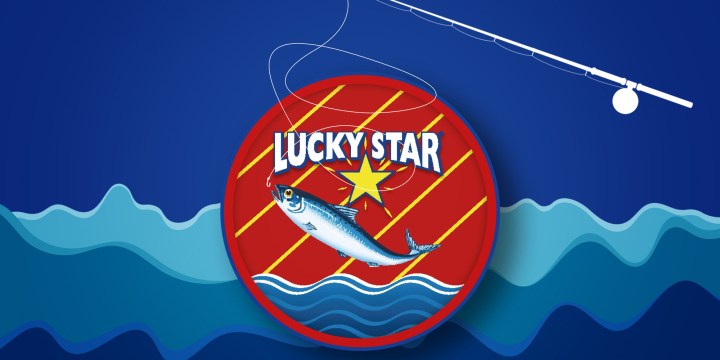Business Maverick
After the Bell: Fishing where the fish are

There is a category of news that is a combination of good news and bad; food company Oceana's recent results perfectly demonstrate the contradiction. The Brimstone-controlled group reported on Monday that their profits surged more than 130% to almost R385 million in its half-year to end March.
For shareholders, that’s obviously good news. The underlying reasons for the increase reside largely in SA’s all too well-known concerns: low economic growth and Eskom’s continuing blackouts. Oceana’s business is underpinned by its iconic Lucky Star canned pilchards. With SA’s poor economic situation, people have been trading down for their protein consumption, choosing the cheaper option which in this case is pilchards rather than, say, chicken.
Blackouts have accelerated that trend, since for spaza shops particularly, keeping chicken fresh is harder than what Oceana CEO Neville Brink calls a “shelf-stable, long-life product that is pre-cooked”.
As it happens, Oceana’s outperformance is only partly driven by pilchard sales because the company has laudably allowed its margins on this product to slip a bit. Prices had increased but much less than food inflation in general. Revealingly, Brink said he was worried about SA consumers who were “battered from all sides”.
In fact, the showstopper was not in fact Lucky Star but the group’s US fishmeal and fish oil operation Daybrook, which contributed 57% of the company’s operating profit of R648 million. That of course is also a good news/bad news thing, since presumably the declining rand tends to increase dollar profits in rand terms. But that wasn’t the only driver since the price of fishmeal is up 11% and fish oil by 60%. And while I’ve tried to avoid metaphors that might smell fishy, I can’t resist pointing out that it’s been a perfect storm for Oceana.
There is one rumour that I need to rectify since there is some suspicion that the sales increase is due to the inclusion of Lucky Star pilchards in former Reserve Bank governor Tito Mbloweni’s famous Twitter stews.

Mboweni has a penchant for displaying his disputable cooking prowess on the social media platform. They are usually concoctions made in large Le Creuset pots, often including extraordinary quantities of tomato puree and a sufficient number of garlic cloves to scare away the most ardent vampire. In case you were thinking the free publicity provided for Lucky Star was behind this sales increase, personally, I rather doubt it. Maybe, however, Le Creuset will enjoy an uptick in its next reporting season from his efforts.
But it has got me thinking about branding, and how wonderfully the Lucky Star brand has endured. Weirdly I think it helps that T-shirts are sold with the Lucky Star logo displayed and that there was even a song called Special Star by Mango Groove in Kwela style which always reminds me of the pilchard can branding for some reason. It has a kind of retro, earthy appeal.
The appeal is not lost on Oceana of course, which is planning to expand the brand into corned meat with production due to start in October. It will compete with another iconic South African brand, RFG’s Bull Brand.
It will be interesting to see how this plays out, but it does demonstrate a broader truth, which is something I learned after much arduous tromping up and down beaches and rivers. The key to catching fish is to fish where the fish are. It doesn’t seem that difficult, but trust me I have tried alternative methods and they haven’t worked, at least not as yet.
Good investing,
Tim Cohen
















There’s more bad news than good news – South Africa’s sardine stocks are so depleted that much of what goes into the tins of this iconic brand is imported from places like Morocco